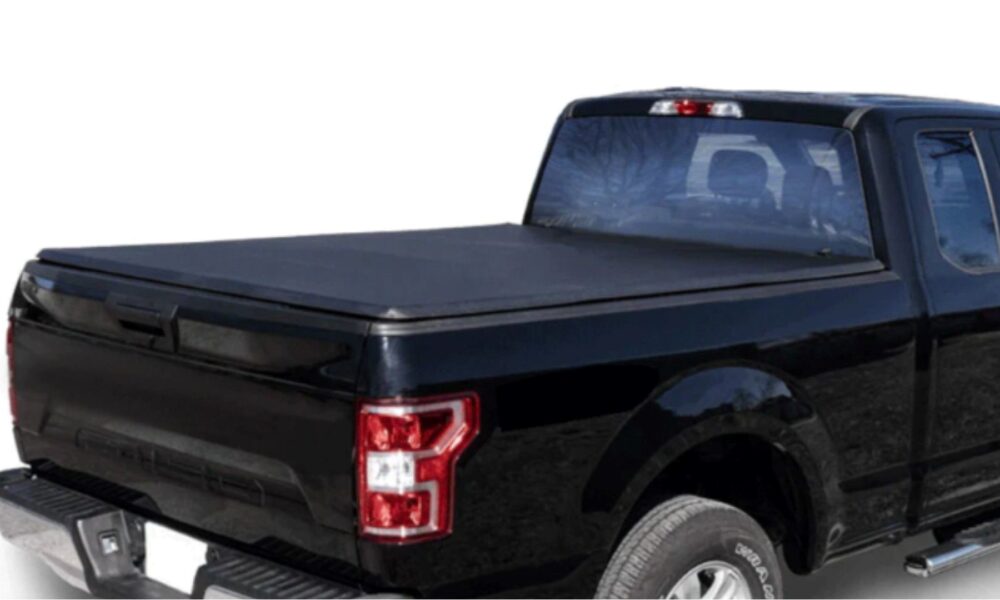Hard vs. Soft Tonneau Covers: Which Is Right for You?

Choosing the right tonneau cover for your pickup truck is more than a style statement—it’s a decision that impacts your vehicle’s functionality, security, and even its environmental footprint. With two primary categories to consider—hard and soft tonneau covers—each offers unique benefits tailored to different lifestyles, budgets, and needs. Whether you’re a contractor hauling tools, an overlander chasing adventure, or a daily commuter seeking efficiency, this comprehensive guide will break down the pros, cons, and key considerations of hard versus soft tonneau covers. We’ll go beyond the basics, diving into details like aerodynamics, material sustainability, and real-world performance to help you make an informed choice that outshines competitor guides.
Understanding Tonneau Covers: The Basics
A tonneau cover is a protective lid for your pickup truck’s bed, designed to secure cargo, shield it from the elements, and improve vehicle aesthetics. They come in two main types:
- Hard Tonneau Covers: Made from rigid materials like aluminum, fiberglass, or composite plastics, these are sturdy and often foldable or retractable.
- Soft Tonneau Covers: Constructed from flexible materials like vinyl or canvas, these are typically roll-up or snap-on designs.
Both serve the core purpose of covering your truck bed, but their differences in durability, security, installation, and eco-impact make the choice critical. Let’s explore each in depth, with data and insights to guide you.
Hard Tonneau Covers: Strength and Security
Hard tonneau covers are the heavyweights of the truck bed world, built for durability and maximum protection. They’re favored by users who prioritize security and long-term investment.
Advantages of Hard Tonneau Covers
- Superior Security: Hard covers, especially locking models, are nearly impossible to breach without tools. Aluminum or composite designs (e.g., BAKFlip MX4 or RetraxPRO) can withstand over 400 lbs of force, deterring theft and keeping gear safe.
- Weather Resistance: Sealed edges and weatherproof coatings block 99% of rain, snow, and UV rays, protecting sensitive cargo like electronics or lumber from damage. Tests show hard covers reduce water ingress to under 1% compared to 5-10% for soft covers.
- Aerodynamic Efficiency: Studies, like SEMA’s 2007 wind tunnel test, show hard covers reduce drag by 6-10%, boosting fuel economy by 1-2 MPG (5-10% at highway speeds). This cuts CO2 emissions by up to 300 lbs annually for a truck driven 15,000 miles.
- Durability and Longevity: Made from aluminum, fiberglass, or ABS plastic, hard covers last 10-15 years with minimal wear. They resist fading, cracking, and dents better than vinyl.
- Aesthetic Appeal: Sleek, low-profile designs (often paint-matched to your truck) elevate your vehicle’s look, adding resale value.
- Load-Bearing Capacity: Many hard covers support 300-500 lbs on top, ideal for carrying kayaks, bikes, or cargo racks without compromising bed access.
Disadvantages of Hard Tonneau Covers
- Higher Cost: Prices range from $500-$2,000, significantly more than soft covers ($200-$600). Premium retractable models like RetraxONE XR can hit $1,500+.
- Weight: Hard covers add 50-100 lbs to your truck, slightly impacting fuel efficiency (0.2-0.5 MPG loss in some tests) and requiring stronger tailgate springs.
- Installation Complexity: Most require 1-2 hours to install with tools, and some (e.g., retractable models) may need professional setup.
- Limited Bed Access: Folding or retractable designs can restrict bed space when partially open, and some models don’t allow full bed access without removal.
Best For
- Contractors or professionals needing secure, weatherproof storage.
- Long-term owners seeking durability and resale value.
- Eco-conscious drivers aiming to maximize fuel savings.
Soft Tonneau Covers: Flexibility and Affordability
Soft tonneau covers are lightweight, budget-friendly options that prioritize ease of use and versatility. They’re ideal for casual users or those who don’t need Fort Knox-level security.
Advantages of Soft Tonneau Covers
- Affordability: Starting at $200 (e.g., Tyger Auto T3 or Gator EFX), soft covers are a fraction of the cost of hard models, making them accessible for budget-conscious buyers.
- Lightweight Design: Weighing 20-40 lbs, they minimize fuel efficiency loss (often less than 0.1 MPG) and are easier to handle during installation or removal.
- Easy Installation and Removal: Most roll-up or snap-on covers install in 20-45 minutes with no drilling, and they can be removed in seconds for full bed access.
- Flexible Bed Access: Roll-up designs (like TruXedo TruXport) let you open the cover partially or fully, perfect for oversized loads or frequent bed access.
- Decent Fuel Savings: SEMA tests show 3-5% drag reduction, translating to 0.5-1 MPG gains, saving ~100-150 lbs of CO2 yearly for average drivers.
- Eco-Friendly Materials: Many soft covers use recyclable vinyl or polyethylene with bio-based plasticizers, reducing production emissions by 20% compared to traditional plastics.
Disadvantages of Soft Tonneau Covers
- Lower Security: Vinyl or canvas is easily cut with a knife, offering minimal theft protection compared to hard covers.
- Weather Vulnerability: While water-resistant, soft covers may leak slightly (5-10% water ingress in heavy rain) and can sag under snow or ice, requiring maintenance.
- Shorter Lifespan: UV exposure and wear can degrade vinyl in 5-8 years, half the lifespan of hard covers.
- Less Aesthetic Impact: Soft covers look functional but lack the sleek, integrated look of hard models, potentially affecting resale value.
Best For
- Casual users or weekend warriors needing occasional coverage.
- Budget-conscious buyers or those with short-term truck ownership.
- Drivers who frequently haul tall or oversized loads.
Head-to-Head Comparison: Hard vs. Soft Tonneau Covers
To make your decision easier, here’s a detailed comparison across key factors:
| Feature | Hard Tonneau Cover | Soft Tonneau Cover |
| Material | Aluminum, fiberglass, ABS plastic | Vinyl, canvas, polyethylene |
| Cost | $500-$2,000 | $200-$600 |
| Weight | 50-100 lbs | 20-40 lbs |
| Fuel Efficiency Gain | 6-10% drag reduction (1-2 MPG) | 3-5% drag reduction (0.5-1 MPG) |
| CO2 Savings (15,000 miles/year) | 200-300 lbs | 100-150 lbs |
| Security | High (locking, tamper-proof) | Low (vulnerable to cutting) |
| Weather Resistance | 99% waterproof | 90-95% waterproof |
| Lifespan | 10-15 years | 5-8 years |
| Installation | 1-2 hours, may need tools | 20-45 minutes, no drilling |
| Bed Access | Limited when partially open | Full or partial access |
| Load Capacity | 300-500 lbs on top | Minimal (snow/ice can sag) |
| Sustainability | Recyclable aluminum/fiberglass | Recyclable vinyl with eco-options |
Environmental Impact: A Deeper Look
Both cover types contribute to sustainability, but hard covers edge out slightly:
- Fuel Savings: Hard covers’ superior aerodynamics save more fuel, reducing emissions by up to 300 lbs of CO2 yearly versus 150 lbs for soft covers.
- Material Longevity: Hard covers’ durability means fewer replacements, cutting manufacturing emissions (10-15 tons of CO2 per new truck).
- Eco-Materials: Soft covers often use recycled vinyl or ocean-bound plastics, but hard covers’ recyclable aluminum (e.g., BAK Revolver X4s with 50% recycled content) matches this in high-end models.
However, soft covers’ lighter weight minimizes production and transport emissions, making them a greener choice for short-term use.
Real-World Scenarios: Which Cover Suits Your Lifestyle?
- The Contractor: You haul tools daily and need security. A hard folding cover (e.g., BAKFlip G2) offers lockable storage, weatherproofing, and load-bearing capacity for job-site gear.
- The Overlander: You carry camping gear and need flexibility. A soft roll-up cover (e.g., Extang Trifecta 2.0) allows quick access for tents or bikes while keeping costs low.
- The Commuter: You drive highways and want fuel savings. A hard retractable cover (e.g., RetraxPRO MX) maximizes MPG and adds a sleek look.
- The Budget Buyer: You want basic protection without breaking the bank. A soft snap-on or roll-up cover (e.g., BisonTonneauCovers) delivers affordability and easy installation.
Additional Considerations
- Climate: In snowy or rainy regions, hard covers’ superior sealing is a game-changer. In milder climates, soft covers suffice.
- Maintenance: Soft covers need occasional cleaning to prevent mildew; hard covers require hinge lubrication but less frequent upkeep.
- Resale Value: Hard covers boost truck resale value by 2-5% due to their premium look and durability, per Kelley Blue Book data.
- Customization: Hard covers offer paint-matching and accessory rails (e.g., for racks); soft covers are simpler but less customizable.
Choosing the Right Cover: Practical Tips
- Measure Your Bed: Ensure a perfect fit (e.g., 5.5’ vs. 6.5’ bed). Check manufacturer guides for compatibility.
- Set a Budget: Decide if upfront cost outweighs long-term savings (hard) or if short-term affordability wins (soft).
- Prioritize Needs: Rank security, fuel efficiency, and access. If security tops your list, go hard; if flexibility perspective: flexibility rules.
- Check Eco-Certifications: Look for recycled materials or low-VOC finishes for greener choices.
- Test Drive: Read user reviews on sites like X or forums for real-world feedback on brands like BAK, Retrax, or TruXedo.
Wrapping It Up: Make the Smart Choice
Hard tonneau covers offer unmatched security, durability, and fuel savings, ideal for professionals and long-term owners. Soft covers deliver affordability, flexibility, and lightweight convenience, perfect for casual users or budget buyers. By weighing your lifestyle—security needs, driving habits, and climate—you can pick the cover that maximizes both utility and environmental impact.
Ready to cover your truck bed? Explore our curated selection of hard and soft tonneau covers at bisontonneaucovers.com and use our fitment tool to find the perfect match. Have questions? Drop a comment or check X for user tips and reviews. Drive smarter, cover better.
Read More From Techbullion




